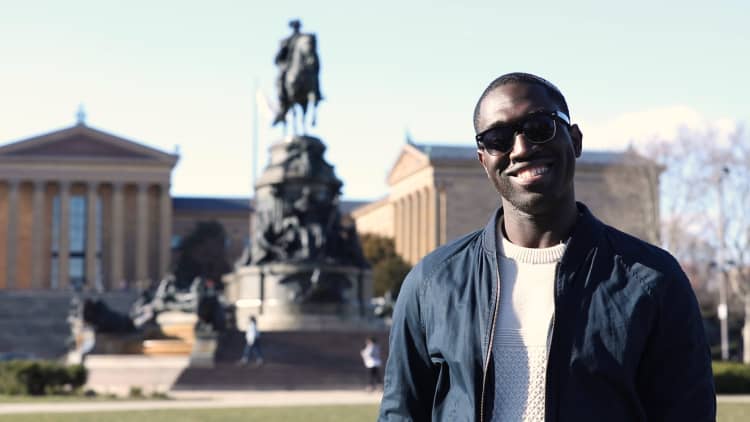While sustained unemployment continues to be the reality for millions of Americans during the coronavirus pandemic, others are being called back to work as states relax their social distancing measures and allow non-essential businesses to reopen. In recent weeks, however, some states have reported an increase in coronavirus cases, and some reopened businesses have had to shut down again to contain the virus.
An uneven approach to returning to work can leave some people wondering how to handle their unemployment benefits, if they can continue filing if they're only back to work part-time and what could happen if they become unemployed yet again. Not to mention, many have already had to deal with nightmarish challenges navigating the unemployment system to begin with.
Here's what to do with your unemployment claim if you're returning to work.
How to stop your unemployment benefits when you're called back to work
When you file for unemployment, you certify your claim weekly or bi-weekly by answering questions about your employment status and reporting any income you've earned during that time period. Your state's department of labor then reviews your claim and releases payment the following week.
Whether you'll need to actively cancel your unemployment payments or simply stop certifying when you go back to work will depend on where you live, so it's best to check with your state's unemployment agency for specific guidance.
Unemployment offices in California and New York, for example, say they don't require direct notice if you've gone back to work. In some cases, your claim will automatically close after a certain time period of inactivity.
In other states, such as Pennsylvania, you'll need to immediately report to your state agency by phone or online that you've started a new job or are going back to work full-time. A failure or delay in doing so could result in getting overpaid, says Michele Evermore, a senior policy analyst at the National Employment Law Project.
"One of the biggest reasons people get overpaid in unemployment is they don't report to the agency right away and accidentally get a check during their first week back to work," Evermore tells CNBC Make It. "Some states only require bi-weekly continued filing, so this could really trip up some workers."
If you receive an extra payment, you must report it to your state agency and pay it back. Depending on how the payment was sent to you, the state can reverse the direct deposit to your bank account, void the check or remove the funds from a prepaid debit card.
If you don't report the error and it's found out through an audit, you could face additional fees and penalties, and it could impact your eligibility if you apply for unemployment again in the future.
It's crucial you stop certifying for unemployment according to the first day you're back to work, not when you start receiving a paycheck from your employer. For example, if you're recalled to work on July 1 but won't be paid until July 15, you still must stop your unemployment benefit as of July 1.
You could still qualify for partial unemployment and the $600 weekly bonus even if you're back at work
If you take up a part-time job or get recalled with reduced hours, you may want to continue filing your weekly unemployment claim. You can earn, through other work, up to a certain amount of your unemployment benefit until your payment begins to decrease. You'll also get the federal boost of $600 per week through the end of July.
In March 2020, unemployment benefits averaged $378 a week nationwide but ranged from a low of $211 in Louisiana to $557 in Massachusetts, according to the Center on Budget Policy and Priorities.
States have their own way of calculating partial unemployment. In Texas, for example, you'll subtract whatever you earned working from 1.25 times your normal state-provided benefit. Pennsylvania allows you to earn 30% of your unemployment benefit before it deducts the rest of your earnings from your payment. New York pays partial benefits if you work less than four days in a week and earn $504 or less; unemployment pay drops by 25% for each day you work, regardless of how many hours you worked that day.
As your earnings go up, your unemployment benefit decreases until it reaches a point where you're no longer eligible for assistance that week.
However, even if you don't qualify one week, you can continue to certify the weeks where your earnings are reduced and you do qualify for full or partial unemployment. You have 52 weeks from the time you qualify for unemployment, considered a "benefit year," to exhaust your benefits, and you don't have to apply for aid on consecutive weeks. Under the coronavirus relief bill, you'll be eligible for up to 39 weeks of unemployment through the end of the year.
"It does get complicated when unemployment is high for over a year and people work intermittently," Evermore says. "They may have trouble establishing a new benefit year the next year. During the last recession, a temporary fix was adopted that would allow workers in subsequent years of employment to use their original benefit year."
If Congress doesn't extend relief efforts into 2021, you may no longer qualify for unemployment if you've already exhausted the amount provided by your state, which ranges from 12 weeks to 28 weeks, though many states also extend benefits during times of high unemployment.
Check out: The best credit cards of 2020 could earn you over $1,000 in 5 years
Don't miss:



